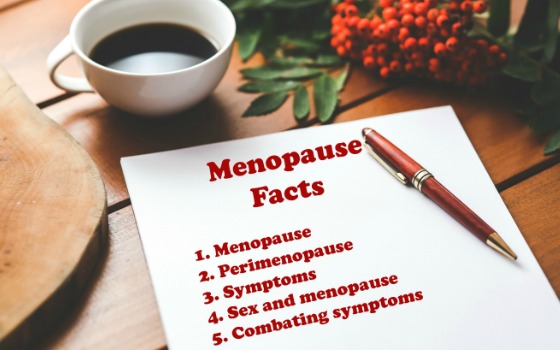Has this ever happened to you?
One morning as I was getting dressed, my husband strolled into the room, looked me up and down and uttered three little words to me. It would have been nice if he had said, “I love you,” but he didn’t. Instead, he gave me the once-over with a critical eye, focused on my bottom half and blurted out, “They’re so wrinkled.”
It was a blistering hot day and, I admit, my shorts were a bit on the crumpled side. I knew they were heavily creased when I pulled them up over my jiggly thighs, but I was too lazy to iron them. Instead, I silently hoped that humidity and gravity would do the job that I didn’t feel like doing. Unfortunately, the proof was staring back at me in the mirror. Still, I wasn’t ready for my sharp response to my husband’s honest observance. It was as if a lever had been flipped in my head, transforming my disposition from calm and content to one of teeth grinding, eye bugging and glass-shattering screeching.
Life didn’t used to be like that. Menopause has given me some unwanted, let’s call them super powers. I can jump on the precarious roller coaster of emotions and morph from happiness to sadness to anger to giddiness – all within the space of a few minutes – and my reasons for the whirlwind of emotions defies logic or reason altogether. It takes so little. Why is this happening?
 Menopause and Mood Swings
Menopause and Mood Swings
When our mood suddenly veers wildly and unpredictably from one extreme to another, we may feel as if we’ve completely lost control of our emotions, and we’re often regretful, baffled and unsure why we’re behaving unlike our normal selves.
When it comes to mood swings in menopause, estrogen is the devious, indiscriminate culprit. During menopause, estrogen levels dip and soon our hormones are thrown off balance. When that happens, our emotions can be all over the place, shifting with the speed of a lightning bolt. And these sudden shifts can be extreme, exaggerated and often irrational, swinging from one end of the scale to the other.
Signs of a Mood Swing
Mood swings can appear out of nowhere and can affect more than just emotions. During mood swings, cortisol, the stress hormone, surges. Normal levels of cortisol, which is the major stress hormone in the body and is produced in the adrenal glands, helps to maintain steady blood sugar levels, regulates how much energy our muscles burn and alters the way our bodies metabolize glucose. This is great when we want it to occur. However, with repeated elevated levels of cortisol, we can experience:
- fatigue
- difficulty concentrating
- tension
- high blood sugar
- aggressiveness
- irritability
- feelings of sadness
These are all signs of mood swings.
RELIEF FROM MENOPAUSAL MOOD SWINGS
Medicine
Hormone replacement therapy (HRT) may offer some relief for menopausal mood swings. HRTs come in a variety of forms and they’re generally regarded as the most effective form of treatment.
Oral pills (which can contain only estrogen or estrogen and progesterone) are the most common dosage form of HRTs. Unfortunately, the risks of HRTs are well publicized, and can contribute to blood clots, stroke, heart attack and breast cancer. Also, because oral estrogen pills are metabolized in the liver, they can have an adverse effect on cholesterol levels. Additionally, there are side effects associated with oral estrogen, such as vaginal discharge, swollen breasts, bloating, nausea and headaches. You and your doctor or menopause practitioner can decide if the benefits of HRTs are worth it for you.
While HRTs are not a ‘one size fits all’ solution, one of the benefits of HRT therapy is the overall beneficial effects on other menopause symptoms (dry vagina, decreased bone loss, hot flashes, etc.).
Other forms of HRT include creams, transdermal skin patches, vaginal rings and vaginal suppositories.
Lifestyle Changes
 To alter your mood and put yourself in a better state of mind, examine your current lifestyle and adjust accordingly. Are you exercising regularly? Exercise helps by triggering the release of endorphins, the “feel good hormones,” which can give you a euphoric feeling. Yoga, pilates or tai chi are low impact exercises that help reduce stress. Or, turn to meditation or breathing exercises.
To alter your mood and put yourself in a better state of mind, examine your current lifestyle and adjust accordingly. Are you exercising regularly? Exercise helps by triggering the release of endorphins, the “feel good hormones,” which can give you a euphoric feeling. Yoga, pilates or tai chi are low impact exercises that help reduce stress. Or, turn to meditation or breathing exercises.
Amino acids and protein also help to improve a woman’s mood. Foods high in amino acid and protein include lean meats (pork chops, ham), eggs, dairy (yogurt, non-fat mozzarella cheese), poultry and seafood (turkey or chicken breast, salmon, halibut, cod, perch).
Get More Sleep
 This one may be easier said then done. Insomnia is, unfortunately, another symptom of menopause. To help, set bedroom ground rules: Put yourself on a sleep schedule by going to bed and waking up at the same time everyday (including on the weekend). Another way you can help yourself get more sleep is to put away the electronics and turn off the television at least one hour before bedtime. Electronics give off blue light which can disrupt your circadian rhythm and suppress the secretion of melatonin, which is the hormone that helps to control your sleep and wake cycle. Additionally, make sure the temperature in your bedroom is comfortable.
This one may be easier said then done. Insomnia is, unfortunately, another symptom of menopause. To help, set bedroom ground rules: Put yourself on a sleep schedule by going to bed and waking up at the same time everyday (including on the weekend). Another way you can help yourself get more sleep is to put away the electronics and turn off the television at least one hour before bedtime. Electronics give off blue light which can disrupt your circadian rhythm and suppress the secretion of melatonin, which is the hormone that helps to control your sleep and wake cycle. Additionally, make sure the temperature in your bedroom is comfortable.
Natural Supplements
While there may not be much scientific evidence to support it, many women have found relief by using herbal supplements. Passionflower, black cohosh, ashwagandha, St. John’s wort and maca root are all purported to be beneficial when treating menopause symptoms, including hormone imbalance, low mood and other mood-related conditions.
Before taking any supplement, consult your physician as some supplements can have side effects and/or interact with your existing medications.
If All Else Fails, Seek Help
You’re not the only one experiencing mood swings and you don’t have to go it alone. Help can come in many forms. Talk with your female friends, join a support group or have a frank discussion with your GYN or menopause practitioner. Your voice is your most powerful tool.
No two women will suffer from mood swings in the same way. The method you use to treat them depends on their intensity. If your mood swings adversely affect your everyday life and you’re feeling increasingly unable to cope, contact your doctor.
What will you do today to combat menopausal mood swings?




